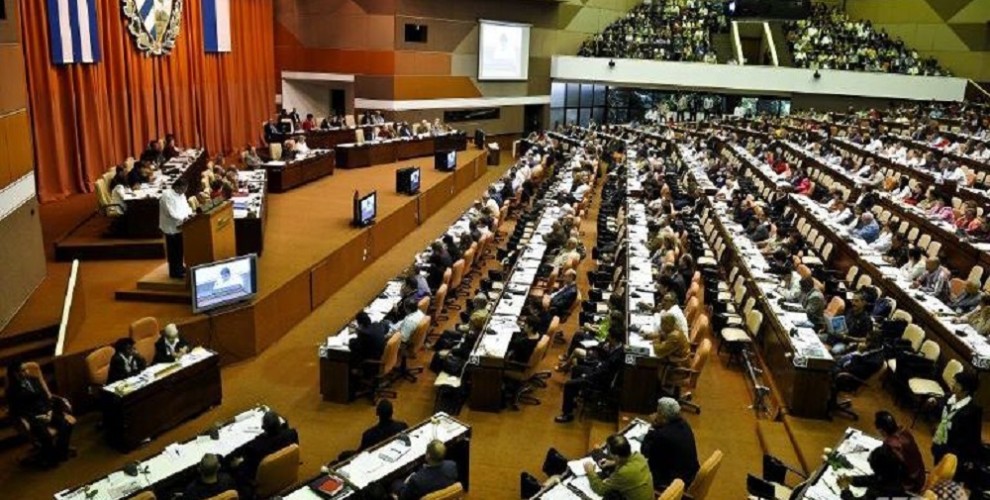Cuban Parliament revised Constitution Project
The last session of the Cuban Parliament this year is dedicated to the revision and discussion of the new Constitution text as well as the analysis of the poor economic results.
The last session of the Cuban Parliament this year is dedicated to the revision and discussion of the new Constitution text as well as the analysis of the poor economic results.

The Cuban Parliament is debating this week the new constitutional text that will be submitted to a referendum on 19 February 2019.
After a wide and hot popular debate the initial project has been met with many doubts, requests of clarification and additions in various issues, beginning from the inclusion of the egalitarian marriage, without any discrimination in gender, the different typologies of property, the structure of central, regional and local powers, the non-recognition of the fact that Cubans, in and out of the country, could become capital investors, to name just a few.
The most controversial issue perhaps has been that on the egalitarian marriage, where a group of churches has launched an active campaign against it, even threatening that if the article would be enclosed in the final text, they would vote against it.
A campaign that has found, sadly, fertile ground, as the Cuban society is still very much a ‘macho’ society and homosexuality, as well as LGBT issues are not exactly accepted here.
The new Constitution, which will be voted by the population through a referendum next February, after the new changes by the Parliament, is important because it will be the main legal ’guide’ for Cuba at least for the next 20 years, right at a time marked by changes, transitions and adjustments for the Cuban Revolution.
Poor Economic Performance
At the same time the Parliament is analysing in detail the worrying economic figures and its subsequent ‘non-existing’ social consequences.
When the so called “Economic and social guidelines” (the strategic plan of transformation in the country) were approved, they envisaged a growth forecast of the Gross Internal Product of 5% per year, together with a foreign investment capital of 5 billion dollars a year, as a crucial basis to implement them. The real figures, though, shows a very different picture, this year, the third consecutive year: the growth is just over 1% while foreign inversion is less then 2,5 billion dollars.
This means that the economy, in both big and daily sense, looks very much like a labyrinth: Lack of products, low salaries, a wide vertical and horizontal corruption, growing social inequalities, growth of various uncomfortable figures (such as poverty)…
While the Cuban Parliament modifies the Constitution project and the social-economic plan for 2019, in a regional context very much adverse given the victories and strengthening of right wing governments and the aggressive attitude of the US towards Cuba, the Cuban president, Miguel Diaz Canel in his speech said that the ‘main battle for Cuba now is the economic one’. This is the pending issue of the Cuban Revolution: ensuring that the population see and feel that there are indeed signals of improvements in their daily life.
The President’s declarations are accompanied by events very little common in Cuba, such as the strong reactions against the new restrictive measures the government wanted to impose to private tourist house renting, autonomous taxi drivers and an autonomous cultural distribution (autonomous from the State, that is).
All regulations that had been decided unilaterally and had managed to produce a clear rejection as those affected had actually said no. This meant that, and this is a first, the state administration has been forced to give a lot of public explications and ultimately had to step back and revert some of the measures.
Furthermore, and as a symptom of the above, we could perhaps add the lack of bread affecting the whole country during this holiday time, due to a bad planning by the importing State companies.